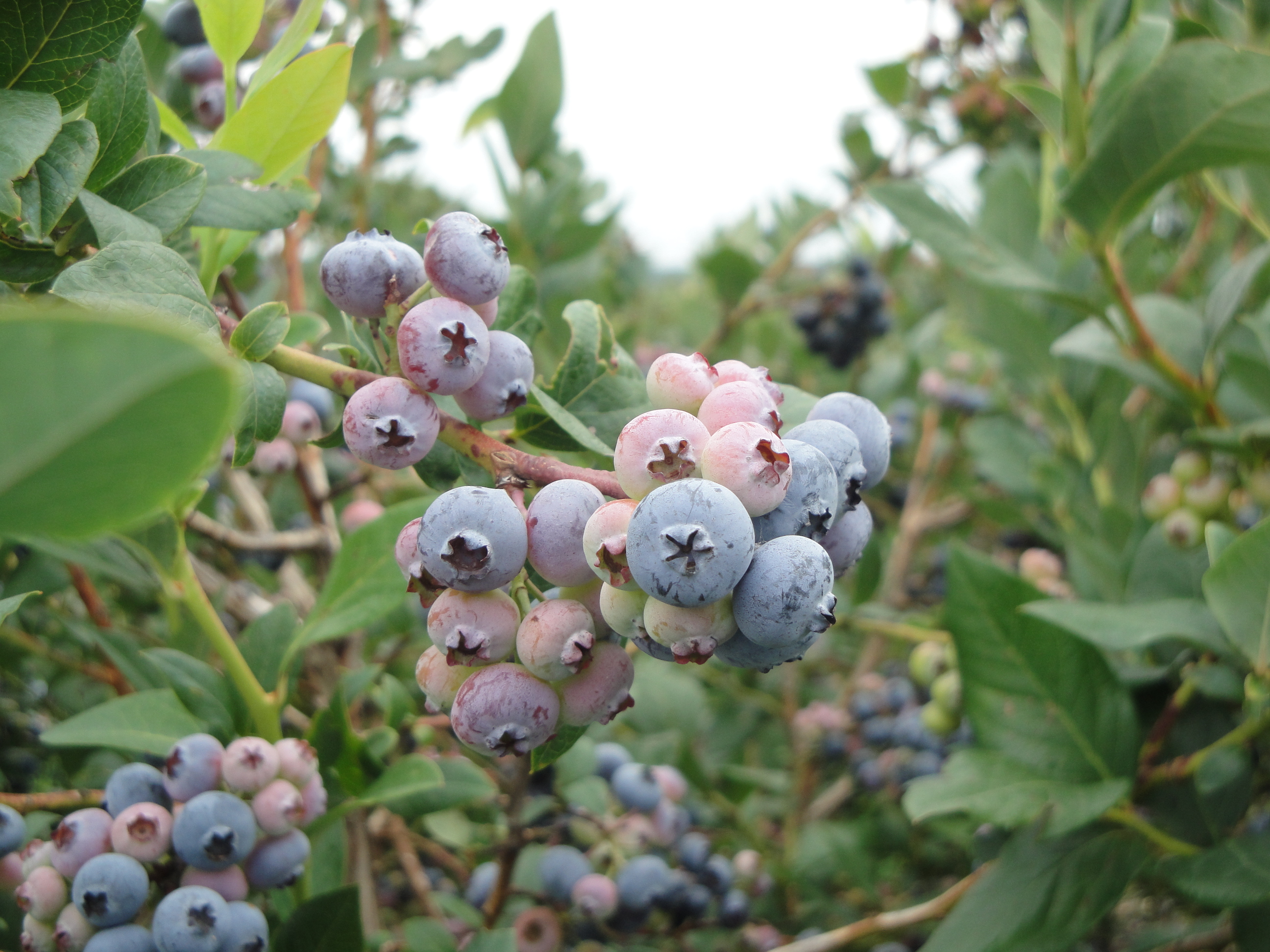We love berries around my house, but I only grow one kind, and it’s a calculated decision about when it’s better to pick berries grown by others rather than grow them. Here’s the calculation:
Reward – work = to grow or not.
The imaginary solution to this equation must be positive.
I thought about this yesterday as my husband and I were picking blueberries at Rush River Produce in Maiden Rock, Wis. Blueberries require a particular type of soil — acidic — that I could not provide without lots of amendments or the use of containers. Like cherries, they also require covering to protect them from birds. For me, that’s more work than it’s worth, when buckets and buckets of blueberries are a short ride and a few bucks away from home, especially if you pick berries yourself.
I don’t grow my own strawberries for a similar reason. Strawberries require a fair amount of fussing to grow — you have to keep them clean, they send out little runners, and they take up quite a bit of space. So I buy a huge flat from a local grower during the strawberry season, then freeze some and make as much jam as I’m likely to use or give away in a year.
With raspberries, the calculation comes out the other way. I grow fall-bearing berries in a double 15-foot long row in my backyard. Each fall, I cut the canes down to the ground, which takes about an hour. In the spring, I apply some compost or other organic fertilizer, and check to make sure my post and wire staking system is likely to last through the season. Starting about now, I pick berries and pick berries and pick more berries. And, for a very minimal investment in time and money, I get gallons of raspberries that would be very pricey in the store. We typically eat the last bag of frozen berries in February!
How do you decide what to grow and what not to grow?

I garden in the upper Midwest as well. I find strawberries to be incredibly easy, with no fussing! I let them run rampant and they produce oodles of berries. No worrying about mother/daughter plants, etc. Growing on a mulched raised bed eliminates most problems with dampness.
I also grow both red and black raspberries. The black ripen first and are far less invasive. Red currants – easy, no problems with the plants whatsoever. Sour cherries – this year was the first year that my tree was large enough to provide for us and the birds, and we had at least a gallon of delicious tart cherries that can’t be found in the stores.
I also have a jostaberry and a gooseberry, and my grapevine is producing for the first time this year – yum!
Sounds like you have lots of fruit! I have considered currants and gooseberries, but don’t have enough room. Enjoy the harvest!